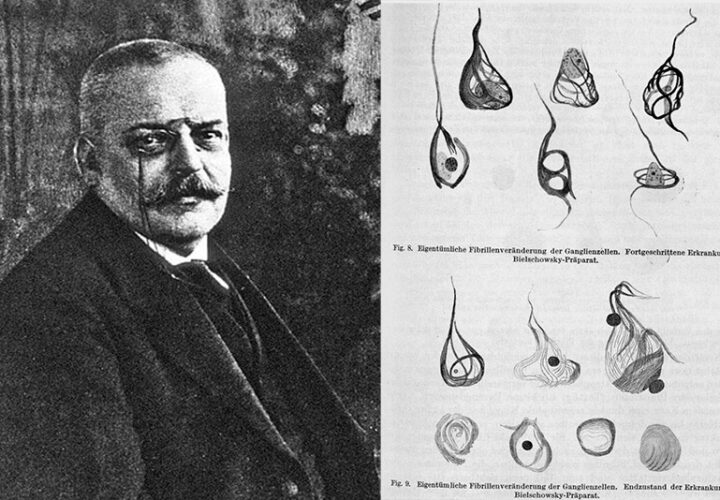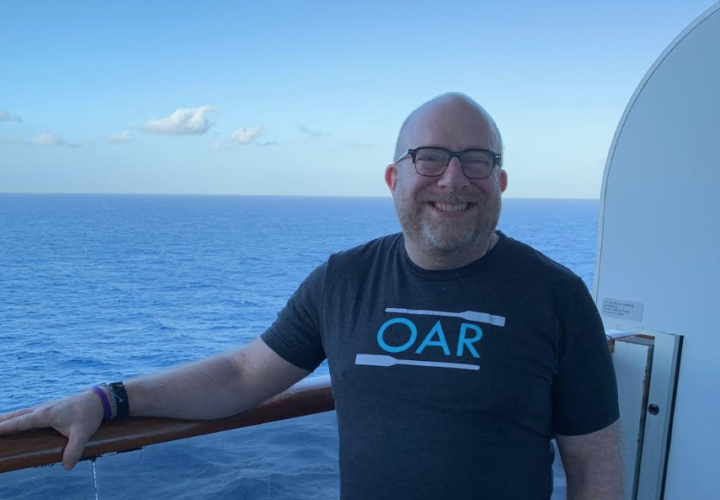A new book by Dr. Jason Karlawish shares largely untold stories the history of the Alzheimer's crisis, discussing the science, missed opportunities, and reasons for hope. But, as Phil Gutis writes, it may also make you angry.
Jason Karlawish is disappointed. Angry even. Read his new book The Problem of Alzheimer’s: How Science, Culture and Politics Turned a Rare Disease Into a Crisis and What We Can Do About It and you too will be disappointed. Or angry.
I fall into the angry category. Not about the book itself, which is very well written, informative and thought-provoking. I, like Karlawish, am angry about the lost century of research into Alzheimer’s and the other neurodegenerative diseases he writes about.
Karlawish, a professor of medicine, medical ethics, health policy and neurology at the University of Pennsylvania, is also the co-director of the Penn Memory Center (and, in full disclosure, part of my own neurology team).
In his new book, he looks back to the day of Dr. Alois Alzheimer and his work in the early 1900s in Germany. Then, Karlawish hops to the 1970s and ‘80s in the United States and writes about the scientific and social awakening to the devastation of Alzheimer’s. He ends the tale in the 2020s — what some have described as a golden era of dementia research.
First, the early 1900s in Germany: Dr. Alzheimer and his scientific colleagues are undertaking path-breaking work in identifying what would ultimately be called Alzheimer’s disease. It was also an amazing time for the standard of care for people living with dementia. However, that progress in both science and caregiving would ultimately be lost to the ravages of anti-semitism and the World Wars. As Karlawish writes, scientific and government interest in dementia didn’t really pick up again until the 1970s in the United States and, even then, interest was tepid at best.
This was not an easy book for a person living with a diagnosis of early-onset dementia like myself to read. But I’d urge anyone dealing with this disease, either as a person with a diagnosis or a care partner, friend or family member, to read Karlawish’s work: It is said that those who don’t understand history are doomed to repeat it. And we must not allow ourselves to repeat this history of neglect and disinterest.
After reviewing the lost century in Europe, Karlawish turns his attention to the 30 years of botched progress in America between 1980 and 2010. This section of the book was in some way the most relevant and disheartening for me.
In it, Karlawish describes a time starting with the nation’s bicentennial in 1976, when science began to focus on the diseases behind dementia (or senility). Along with the early stirs of scientific interest came the embers of public engagement.
In 1980, he writes, the organization that would become the Alzheimer’s Association was founded. The new National Institute of Aging decides to make Alzheimer’s its focus. And Congress passes legislation to authorize a national network of Alzheimer’s disease research centers.
“A lot of stuff starts happening in ways that are really exciting,” Karlawish said during an interview with me and Christy Turner on the Alzheimer’s Podcast. “And then it all just kind of gets sand in the gears.”
What happened? “Frankly it all comes down to the rise of Ronald Reagan and Reaganism and the events that would follow,” Karlawish explained. “The pitched battle about the politics of welfare, fears of ‘socialism.’”
What sets his book apart and makes it well worth a read
are the innumerable details and largely untold stories of scientists,
public policy makers, advocates and, of course, people
living with the disease and their families.
Not surprisingly this is the spot where I got angry. Yes, it was disappointing that the early promise of Dr. Alzheimer and his colleagues was lost for three-quarters of a century. But it was — and is — infuriating that the partisan battles that marked the end of the 20th century (and continue in many ways today) cost us so much.
“The problem was a divided Congress,” Karlawish writes. “It agreed to fund the NIH to support research to discover a cure. It could not agree on how to care for persons with Alzheimer’s disease. The idea of social insurance for long-term care, to support the cost of interventions such as an adult day care program and the time spent caregiving, exposed ideologically charged flash points.”
Sound familiar? In some ways, many of the overarching stories that Karlawish tells are at least generally familiar. What sets his book apart and makes it well worth a read are the innumerable details and largely untold stories of scientists, public policy makers, advocates and, of course, people living with the disease and their families.
It is almost unimaginable determination of those untold heroes of the Alzheimer’s movement that have brought us to the point where the FDA is currently considering Biogen’s aducanumab for approval as the first disease-modifying drug for Alzheimer’s.
So despite our feelings of anger and despair, Karlawish definitely provides hope too. Even if aducanumab does not turn out to be a treatment (we should know by early June if the FDA will approve the drug), Karlawish sets the stage for continued progress. And with books like his, we can be certain that this time, the Alzheimer’s community will not let sand muck up the gears.




Phil- I thank you for your fearless focus on reporting the troubled history of funding and finding a cure for Alzheimer’s Disease. You have a powerful platform to speak from and you use it to speak for 6.3 million Americans diagnosed with Alzheimer’s and their 11 million family caregivers.
I respect and applaud you.
I am currently coordinating moving my mother in law, who has Alzheimer’s, from Alabama to Greensboro. This has been a six month journey and I felt so alone. I listened to the podcast Dr. Karlawish did with Brene Brown, and I am overcome with gratitude. I have been having panic attacks and feeling so overwhelmed. Just knowing I am not crazy makes me feel a little more able to make a plan and survive this journey. I am still angry and tired of the way the system is set up not to support anyone. I am ready to fight for change.